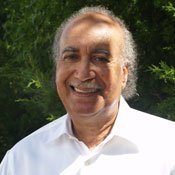Donna Ladd's "My Kind of Tea Party," which appeared in your July 15-21, 2010, issue, brought back vivid memories of a few people who spoke out against unbridled racist propaganda and hate-inspired actions that have made Mississippi the poster state for pervasive racism. They are the late Hazel Brannon Smith, professor James W. Silver and the late state Sen. Henry Kirksey.
Indeed, there were others, but I had the privilege of meeting and engaging these three in focused, thought-provoking conversation. Consequently, they are etched in my memory in a personal way.
These people wrote and spoke out against blatant injustice in the legal system, the economy, all levels of government and the entire social system. They did so at a time when the lives of most black Mississippians and some white Mississippians were fraught with threats of physical, social and economic reprisals.
The courage, perseverance and endurance of Smith, Silver and Kirksey contributed to my decision to stay in Mississippi. Smith, a Pulitzer Prize-winning small newspaper owner and editor, could have lived a comfortable, upper-middle-class life if she had not chosen to speak out against injustice and blatant discrimination. Silver, then an Ole Miss professor, could have led a productive comfortable life as a university professor had he not chosen to speak out against a system in which law and common sense were, as he so aptly stated, "nullified by custom and tradition." Kirksey could have lived out his life with fewer controversies and personal problems had he chosen to focus on "making a living" and engaging in ingratiating behavior toward people with power and wealth.
These persons were "called" to speak out against evil, injustice, benign neglect and moral/ethical bankruptcy. Your "My Kind of Tea Party" column speaks to your courage, perseverance and endurance, and your desire to purge the hate-filled thoughts and actions of those who serve as a hindrance to our progress.
Needless to say, they paid the price so many have paid for non-conformity (i.e., social, economic and psychological reprisals).
Some newspapers, talk-show hosts and ministers pander to the prevailing winds of profit and power. A noteworthy number of black Mississippians have used and are using ingratiating behaviors to enhance their economic and social comfort level. Intolerance, self-interest and racism are frequently hidden under flags of patriotism, Christianity and public service.
Many Mississippians, black and white, are pre-occupied with eking out minimal survival-level existences; they do little critical thinking about the quality of leadership in government.
The proliferation of private Christian "segregation" academies and the support they continue to receive serve as indicators that the past lies dormant, not dead. Spatial segregation continues in Mississippi. Small inroads have been made in the area of religion, relative to diversity in some congregations.
In spite of positive changes, whenever a window of opportunity opens, the residuals of Mississippi's segregationist past enter quickly and attempt to steal away any signs of healing the proverbial wounds.
Again, I commend you on your moral, ethical and humanistic convictions; however, be vigilant. Hate, intolerance and ignorance have been wounded, but they are not dead.
Rommel W. Benjamin is a retired sociology professor living in west Jackson. He taught at numerous universities throughout his career, including Southern Illinois University, Mississippi Valley and Jackson State universities.



Comments
Use the comment form below to begin a discussion about this content.